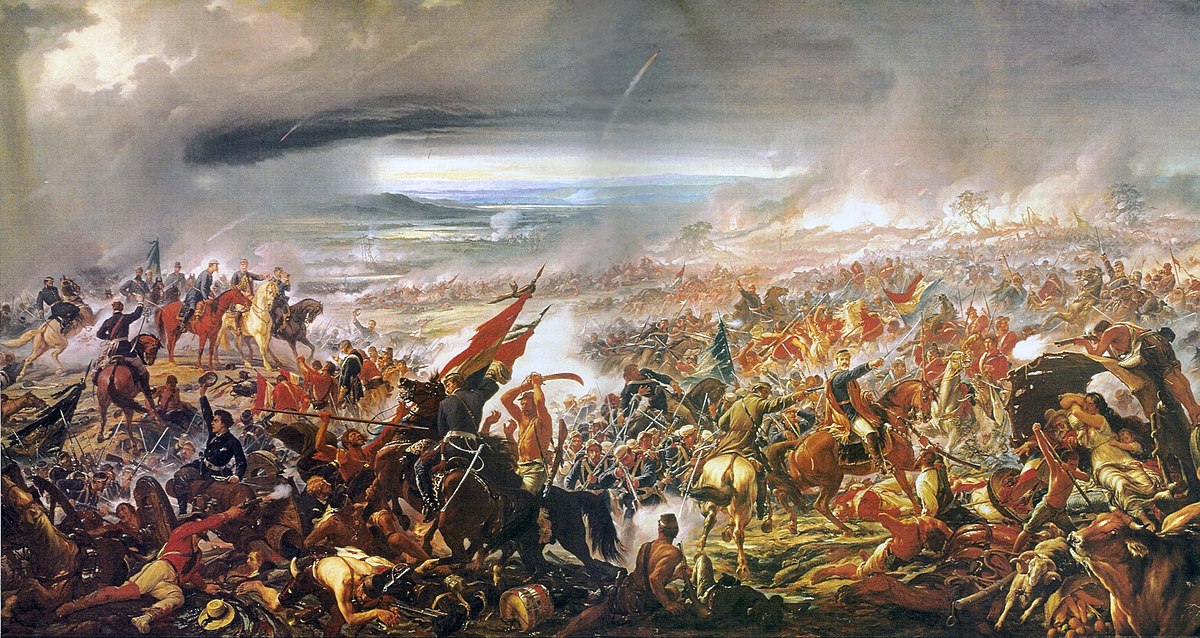
War of the Triple Alliance
South AmericaThe War of the Triple Alliance was a South American war that lasted from 1864 to 1870. It was fought between Paraguay and the Triple Alliance of Argentina, the Empire of Brazil, and Uruguay. It was the deadliest and bloodiest inter-state war in Latin American history. Paraguay sustained large casualties, but the approximate numbers are disputed. Paraguay was forced to cede disputed territory to Argentina and Brazil. The war began in late 1864, as a result of a conflict between Paraguay and Brazil caused by the Uruguayan War. Argentina and Uruguay entered the war against Paraguay in 1865, and it then became known as the "War of the Triple Alliance."
After Paraguay was defeated in conventional warfare, it conducted a drawn-out guerrilla resistance, a strategy that resulted in the further destruction of the Paraguayan military and the civilian population. Much of the civilian population died due to battle, hunger, and disease. The guerrilla war lasted for 14 months until President Francisco Solano López was killed in action by Brazilian forces in the Battle of Cerro Corá on 1 March 1870. Argentine and Brazilian troops occupied Paraguay until 1876.
The War helped the Brazilian Empire to reach its peak of political and military influence, becoming the Great Power of South America, and also helped to bring about the end of slavery in Brazil, moving the military into a key role in the public sphere. However, the war caused a ruinous increase of public debt, which took decades to pay off, severely limiting the country's growth. The war debt, alongside a long-lasting social crisis after the conflict, are regarded as crucial factors for the fall of the Empire and proclamation of the First Brazilian Republic. The economic depression and the strengthening of the army later played a large role in the deposition of the emperor Pedro II and the republican proclamation in 1889.
As in other countries, "wartime recruitment of slaves in the Americas rarely implied a complete rejection of slavery and usually acknowledged masters' rights over their property." Brazil compensated owners who freed slaves for the purpose of fighting in the war, on the condition that the freedmen immediately enlist. It also impressed slaves from owners when needing manpower, and paid compensation. In areas near the conflict, slaves took advantage of wartime conditions to escape, and some fugitive slaves volunteered for the army. Together these effects undermined the institution of slavery.
